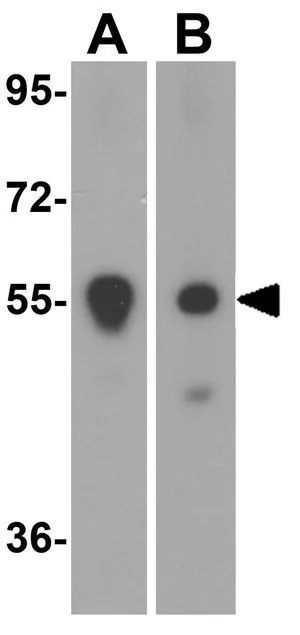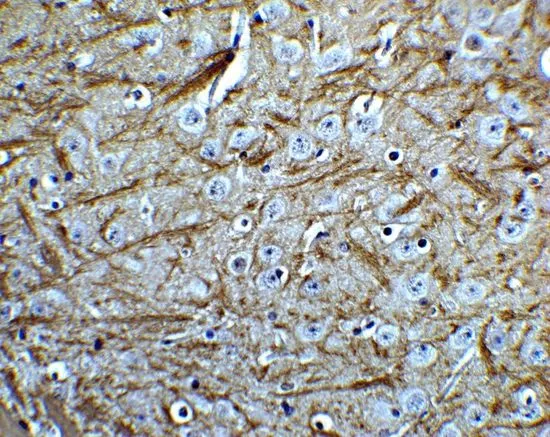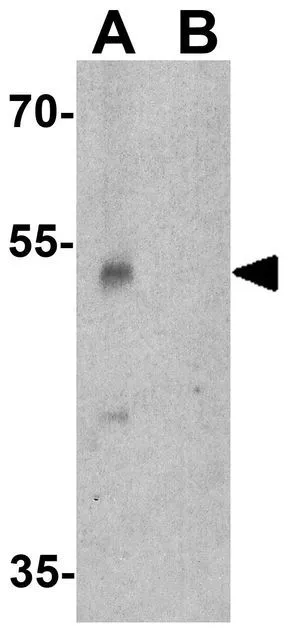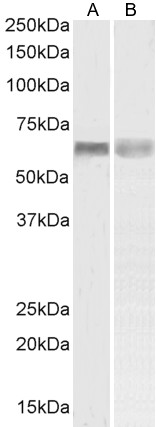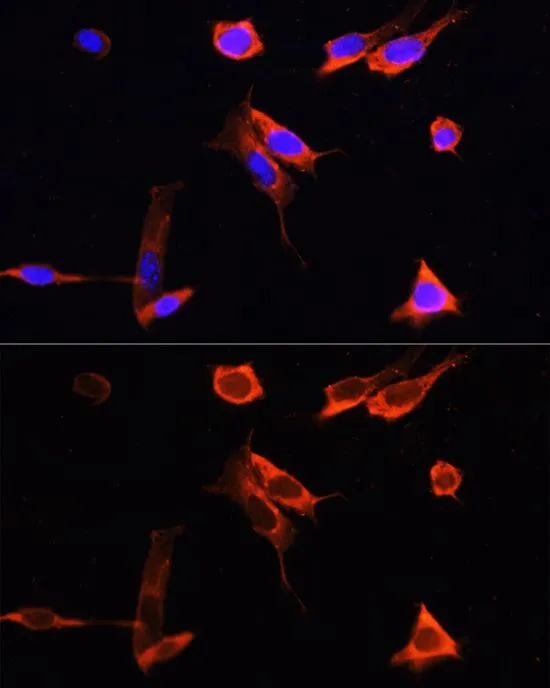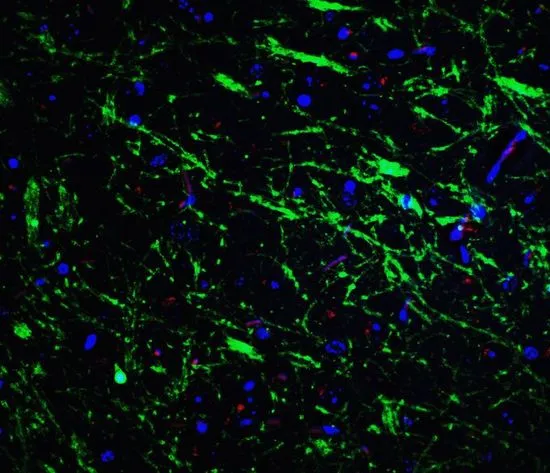
IHC-P analysis of mouse brain tissue using GTX31581 PINK1 antibody. Working concentration : 20 μg/ml Green : Primary antibody Blue : DAPI Red : Actin
PINK1 antibody
GTX31581
ApplicationsWestern Blot, ELISA, ImmunoHistoChemistry, ImmunoHistoChemistry Paraffin
Product group Antibodies
ReactivityHuman, Mouse, Rat
TargetPINK1
Overview
- SupplierGeneTex
- Product NamePINK1 antibody
- Delivery Days Customer9
- Application Supplier NoteWB: 1 - 2 microg/mL. IHC-P: 5 microg/mL. *Optimal dilutions/concentrations should be determined by the researcher.Not tested in other applications.
- ApplicationsWestern Blot, ELISA, ImmunoHistoChemistry, ImmunoHistoChemistry Paraffin
- CertificationResearch Use Only
- ClonalityPolyclonal
- Concentration1 mg/ml
- ConjugateUnconjugated
- Gene ID65018
- Target namePINK1
- Target descriptionPTEN induced kinase 1
- Target synonymsBRPK, PARK6, serine/threonine-protein kinase PINK1, mitochondrial, PTEN induced putative kinase 1, PTEN-induced putative kinase protein 1, protein kinase BRPK
- HostRabbit
- IsotypeIgG
- Protein IDQ9BXM7
- Protein NameSerine/threonine-protein kinase PINK1, mitochondrial
- Scientific DescriptionThis gene encodes a serine/threonine protein kinase that localizes to mitochondria. It is thought to protect cells from stress-induced mitochondrial dysfunction. Mutations in this gene cause one form of autosomal recessive early-onset Parkinson disease. [provided by RefSeq, Jul 2008]
- ReactivityHuman, Mouse, Rat
- Storage Instruction-20°C or -80°C,2°C to 8°C
- UNSPSC12352203

